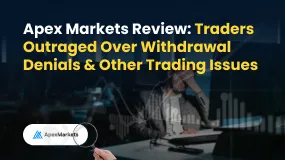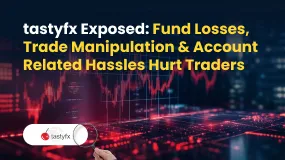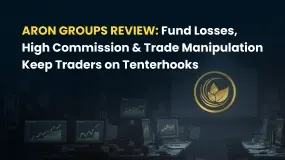简体中文
繁體中文
English
Pусский
日本語
ภาษาไทย
Tiếng Việt
Bahasa Indonesia
Español
हिन्दी
Filippiiniläinen
Français
Deutsch
Português
Türkçe
한국어
العربية
When to Play Defence and Offence in Trading?
Abstract:The journey of trading, whether in forex, stocks, or cryptocurrencies, is often likened to a game. And like any game, the strategies of offence and defence come into play. Traders must navigate periods of opportunity and risk with precision, constantly asking themselves, “When should I take an aggressive stance, and when is it better to protect my assets?”

The journey of trading, whether in forex, stocks, or cryptocurrencies, is often likened to a game. And like any game, the strategies of offence and defence come into play. Traders must navigate periods of opportunity and risk with precision, constantly asking themselves, “When should I take an aggressive stance, and when is it better to protect my assets?” The reality is, theres no clear-cut answer. Instead, the key lies in understanding the timing and context of each move.

In trading, playing defence doesn‘t mean sitting on the sidelines; it’s about safeguarding your capital when the market shows signs of uncertainty or instability. Defensive periods are often tied to high market volatility, geopolitical tensions, or unfavourable economic data that can swing prices in unpredictable directions. During these times, traders should prioritise preservation over profit. Its crucial to adopt a mindset of risk management, reducing exposure by lowering position sizes, employing stop losses, and avoiding over-leveraging.
For instance, if a significant news event such as an election or major policy change looms, markets may fluctuate rapidly and irrationally. This unpredictability makes it wise to step back and protect your positions, opting for low-risk trades or even exiting the market temporarily until conditions stabilise. In times of increased uncertainty, defensive strategies such as holding cash reserves, diversifying portfolios, and hedging through options or safe-haven assets can help limit exposure.

On the other hand, traders must also know when to strike offensively. Offensive periods occur when the market presents clear opportunities for profit, supported by strong trends or positive macroeconomic conditions. Playing offence in trading is about maximising your potential gains by increasing trade sizes, taking advantage of strong momentum, or entering new markets that show promise.
The offensive mindset is best applied during periods of strong market momentum or when you have solid reasons to believe in the direction of a trade. For example, when central banks announce policies that directly impact currency valuations, such as interest rate cuts or hikes, these moments often create opportunities to take larger positions. Similarly, when a traders analysis aligns with fundamental data, such as earnings reports or economic growth, the conditions are ripe for more aggressive trades.
But, even in an offensive stance, its important not to rush. Traders often make the mistake of being too aggressive too soon, leading to poor entries or mistimed positions. Patience is a key part of an offensive strategy. Waiting for a confirmed breakout or price action that supports your analysis can mean the difference between a profitable trade and a premature loss.

Timing in trading is everything. Balancing offensive and defensive strategies is crucial to long-term success. No trader should always be in one mode; rather, its about understanding when to shift gears. Too often, traders get stuck in an overly defensive posture, missing out on profitable trades, or become too aggressive, leading to unnecessary losses. Recognising market sentiment and being aware of economic news cycles can help traders gauge when to go on the offensive or retreat defensively.
In the end, a successful trader is not one who only focuses on scoring big wins, but one who also knows how to defend their gains. Maintaining emotional discipline and recognising that not every market condition requires aggressive action can keep your capital intact and ready for the next opportunity.
The balance between offence and defence in trading hinges on one critical skill: patience. Understanding when to act and when to wait is a traders most powerful tool. Whether the market calls for bold moves or cautious defence, traders must avoid rushing into decisions. A well-timed move, after careful analysis, will always beat a hasty trade driven by emotion or impatience. Traders who can master this balance are those who can navigate markets consistently and profitably.

Disclaimer:
The views in this article only represent the author's personal views, and do not constitute investment advice on this platform. This platform does not guarantee the accuracy, completeness and timeliness of the information in the article, and will not be liable for any loss caused by the use of or reliance on the information in the article.
Read more

Apex Markets Review: Traders Outraged Over Withdrawal Denials & Other Trading Issues
Struggling to access fund withdrawals from Apex Markets for months? Does the broker remain silent on fund withdrawal issues? Does the Saint Vincent and the Grenadines-based forex broker reject your winning trades? Have you failed to get a refund into the card used for deposits? Did the broker deduct from your trading account instead? Traders have been imposing these scam allegations while sharing the Apex Markets Review online. We read the reviews and shared some of them below. Take a look!

tastyfx Exposed: Fund Losses, Trade Manipulation & Account Related Hassles Hurt Traders
Are fund losses normal for you at tastyfx? Does the US-based forex broker constantly manipulate prices to hit your trading experience? Do you fail to receive a reply from the broker on your fund withdrawal requests? Do you constantly face trading account issues with tastyfx? It’s time to read the tastyfx review shared by traders online.

Aron Groups Review: Fund Losses, High Commission & Trade Manipulation Keep Traders on Tenterhooks
Have you lost your hard-earned capital while trading via Aron Groups Broker? Has the high commission charged by the broker substantially reduced your trading profits? Does the Marshall Islands-based forex broker constantly manipulate spreads to widen your capital losses? Have you been lured into trading courtesy of Aron Groups No Deposit Bonus, only to find that you had to deposit capital to get a bonus? All these and many more trading issues have become synonymous with the experience of Aron Groups’ traders. Consequently, many traders have shared negative Aron Groups reviews online. In this article, we have shared some of their reviews.

Uniglobe Markets Bonus Review: Understanding the Offers and Uncovering the Risks
Many traders start looking for a new broker by searching for special deals and bonuses. The phrase "Uniglobe Markets no deposit bonus" is something people often search for. Let's address this question clearly and directly. Based on all the information we have, Uniglobe Markets does not currently offer a no-deposit bonus. Instead, this broker focuses on bonuses that require you to deposit your own money first. To get any bonus credits, traders must put in their own capital. Read on to learn how this entire bonus works out for traders.
WikiFX Broker
Latest News
Is Nash Markets Regulated or Risk? Truth About Nash Markets’ License & Withdrawal Issues
Webull Widens Crypto Futures with Coinbase Derivatives
Latest FCA Daily Alerts and Consumer Warnings for 2025
CySEC Blocks Certification Access to Combat Advisor Impersonation
Angel one 2025 Review & Complaints
Exclusive Markets Under the Scanner: Traders Report High Swap Charges, Deposit Discrepancies & More
Voices of the Golden Insight Award Jury - Simon So, Chief Experience Officer of Hantec Financial
PINAKINE Broker Review: A Complete Look at Its Services and Risks
Pinched By Penny Shortage, US Retailers Beg Congress To Step In
PINAKINE Broker India Review 2025: A Complete Guide to Safety and Services
Currency Calculator




